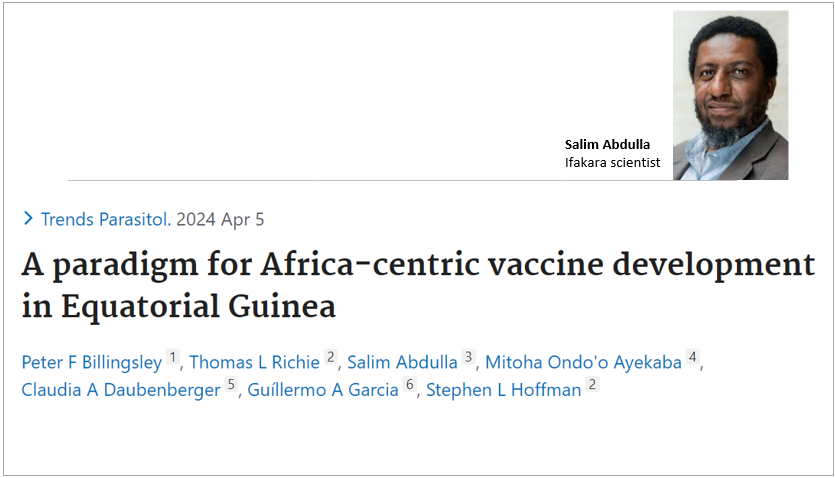
DIALOGUE: Scientists discuss model for future Africa-focused clinical research

In a recent scientific article, scientists from the US, Africa and Europe, discuss the achievements and challenges of The Equatorial Guinea Malaria Vaccine Initiative (EGMVI), a public-private partnership that offers a model for future Africa-focused clinical research and development (R&D) projects.
The EGMVI, a pioneering, award-winning project, aims to support the clinical development of Sanaria® PfSPZ Vaccines for malaria through the launch of a clinical research platform to conduct vaccine trials. Ultimately, the project aims to eliminate malaria in Central and West Africa.
Currently, the EGMVI has successfully completed three vaccine trials in Equatorial Guinea, two vaccine trials in Tanzania, and a malaria incidence study, and plans to use the PfSPZ Vaccine alongside standard malaria control interventions to eliminate malaria.
Led by Peter Billingsley, the Vice President of International Projects and Strategy at Sanaria Inc., the article involves collaboration among scientists from Ifakara Health Institute, Swiss TPH, the Ministry of Health and Social Welfare in Equatorial Guinea, and MCD Global Health.
The scientific article is published on the Trends in Parasitology journal and highlights how the EGMVI partnership underscores the potential for long-term investments from African governments and international energy industries, along with new partnerships, can help develop vaccines in Africa for African needs.
Ifakara scientist contributes
Prof. Salim Abdulla, a seasoned Ifakara scientist and clinical epidemiologist, contributed in the writing of the scientific article.
Mainly, his work focuses on the evaluation of new interventions for malaria including diagnostics, insecticide-treated nets, drugs and vaccines, conducting field trials from Phase I to Phase IV.
Prof. Abdulla has led several malaria and COVID-19 clinical research programs at Ifakara with work in Tanzania and Equatorial Guinea.
Read the publication here.
